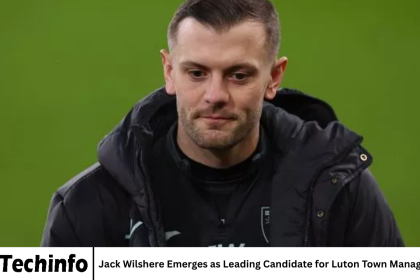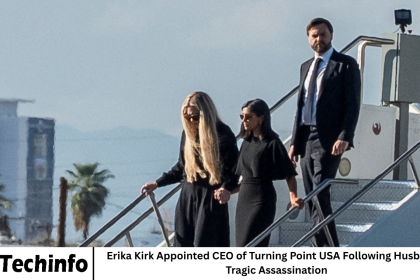The trial of Ryan Routh, the man accused of attempting to assassinate former President Donald Trump at his Florida golf course, has officially opened, marking one of the most closely watched courtroom proceedings in recent U.S. history. This case has captured widespread national and international attention, not only because of the high-profile nature of the target but also because it raises critical questions about political violence, the limits of security around public figures, and the broader divisions within American society. With Trump once again at the center of U.S. politics as he campaigns for the presidency, the trial has become more than just a criminal proceeding—it is a reflection of the dangerous polarization that continues to define the nation.
- The Incident That Shocked the Nation
- Who is Ryan Routh?
- The Charges Against Routh
- Inside the Courtroom: A High-Stakes Legal Battle
- Political Repercussions of the Assassination Attempt
- The Broader Threat of Political Violence in America
- Media Coverage and Public Reaction
- What Lies Ahead in the Trial
- The Significance of This Trial for American Democracy
- FAQs
- Conclusion
Court observers, legal analysts, and political commentators are following every detail, while security experts point to the attempted attack as a reminder of the ever-present risks faced by political leaders. As the proceedings unfold, prosecutors are expected to present extensive evidence against Routh, while the defense will attempt to cast doubt on the government’s narrative. The trial will not only determine Routh’s fate but may also shape the national discourse on political extremism, security, and democracy.
The Incident That Shocked the Nation
The alleged assassination attempt occurred at Trump National Doral Golf Club in Florida, where Trump was playing a round of golf with close associates. According to investigators, Ryan Routh was discovered with a firearm near the course and had reportedly been monitoring Trump’s movements. Law enforcement sources revealed that quick action by Secret Service agents and local law enforcement prevented what could have been a national tragedy.
Witnesses at the golf course described a scene of chaos as security agents swiftly surrounded the area, evacuating members and securing Trump. Routh, identified as a 58-year-old man with a history of radical political statements, was arrested without major incident, though authorities later disclosed that he had been heavily armed. While Trump was unharmed, the event sent shockwaves through the political world, underscoring the fragility of security even for high-profile figures under constant protection.
Who is Ryan Routh?
Ryan Routh, now at the center of this high-stakes trial, is not an unknown figure to investigators. He has a complicated personal history, with reports suggesting ties to extremist ideologies. Prior to his arrest, he had reportedly posted inflammatory remarks online, targeting political leaders and fueling suspicions about his motives. Friends and neighbors, however, painted a more nuanced picture, describing him as reclusive but not outwardly violent.
Experts on domestic extremism have pointed out that Routh’s alleged actions fit a broader pattern of politically motivated violence seen across the United States in recent years. While it remains unclear what specifically drove him to allegedly target Trump, prosecutors argue that his writings and actions demonstrate a clear intent to carry out an assassination attempt. The defense, however, is expected to argue that Routh was mentally unstable and not capable of forming the intent required for such a crime.
The Charges Against Routh
Routh faces multiple federal and state charges, including attempted assassination of a former president, unlawful possession of firearms, and conspiracy. Legal experts emphasize that the attempted assassination charge alone carries the potential for a life sentence if convicted. Prosecutors have signaled their intention to pursue the case aggressively, framing it as an attack not only on Trump but on the integrity of American democracy.
In opening statements, prosecutors painted Routh as a dangerous man who meticulously planned an attempt on Trump’s life. They referenced security footage, intercepted communications, and testimony from witnesses to argue that his actions were deliberate and premeditated. The defense countered by suggesting that Routh was driven by delusion rather than a calculated plan, seeking to undermine the prosecution’s narrative of intent and capability.
Inside the Courtroom: A High-Stakes Legal Battle
The courtroom atmosphere has been tense from the start. Media outlets from across the world have filled the press section, while security outside the courthouse remains heightened. Trump’s legal team is not directly involved in the trial, but his political aides and allies have made their presence known, framing the incident as evidence of the hostility Trump faces from opponents.
Routh appeared composed during the first days of testimony, though his lawyers have frequently intervened to object to the prosecution’s framing of evidence. The defense is expected to bring in mental health experts to testify about Routh’s state of mind, hoping to avoid the harshest penalties. Prosecutors, meanwhile, are relying heavily on the Secret Service’s testimony, as agents recount the moment they identified and neutralized the threat.
Political Repercussions of the Assassination Attempt
The attempt on Trump’s life has reverberated far beyond the courtroom. Trump himself has used the incident to emphasize his claims of being a political target, suggesting that violence against him reflects broader hostility toward his movement. In speeches following the incident, Trump portrayed himself as a survivor, drawing parallels to historical figures who faced threats during turbulent times.
Republican leaders have seized on the event to argue that the political climate in the U.S. has become dangerously toxic, blaming heated rhetoric from Trump’s opponents. Democrats, while condemning the assassination attempt, have cautioned against politicizing the case, emphasizing instead the need for improved security protocols and a focus on de-escalating violent extremism.
The Broader Threat of Political Violence in America
Statistics show a troubling rise in politically motivated violence across the United States. According to the Center for Strategic and International Studies, incidents of domestic terrorism doubled between 2015 and 2020, with political extremism accounting for a growing percentage of these cases. Experts warn that attempts like the one allegedly carried out by Routh are not isolated but part of a broader trend of radicalization.
Security officials have stressed the difficulty of fully protecting high-profile figures like Trump, who remain active in public spaces such as golf courses and rallies. “Even with the most advanced security measures, there is always a risk when public figures maintain regular interactions in open environments,” one former Secret Service official noted. The Routh case, therefore, underscores the persistent challenge of balancing visibility with safety.
Media Coverage and Public Reaction
The trial has sparked intense media coverage, with networks providing daily updates and commentators weighing in on the significance of the case. Public opinion has been sharply divided, with Trump supporters expressing outrage and framing the attempt as part of a broader pattern of hostility, while others caution against drawing sweeping political conclusions from one individual’s actions.
Social media has also played a significant role, with hashtags related to the trial trending worldwide. Analysts point out that such coverage can both inform and inflame public opinion, contributing to heightened polarization. The courtroom proceedings have thus become not only a legal matter but also a cultural and political flashpoint.
What Lies Ahead in the Trial
The trial of Ryan Routh is expected to last several weeks, with both sides preparing to call a wide range of witnesses. For the prosecution, the focus will be on establishing premeditation and intent, while the defense aims to raise doubts about Routh’s mental state and capacity to carry out the alleged plan. The jury will ultimately face the difficult task of weighing these competing narratives.
Legal analysts suggest that the outcome could hinge on how convincingly the defense presents its case regarding Routh’s mental health. If jurors believe he was delusional and incapable of deliberate action, they may reject the most serious charges. If, however, they accept the prosecution’s portrayal of Routh as a calculated threat, a conviction on attempted assassination charges appears likely.
The Significance of This Trial for American Democracy
Beyond the fate of Ryan Routh, this trial carries broader implications for American democracy. It is a stark reminder of the threats facing political leaders and the importance of maintaining robust security measures. At the same time, it highlights the deep divisions that fuel violence and extremism. For many observers, the trial is not just about one man’s alleged actions but about the state of the nation itself.
Political historians have noted that assassination attempts on U.S. presidents and former presidents, while rare, have often coincided with periods of heightened national tension. The Routh case may therefore be remembered not only for its immediate impact but also as a reflection of America’s political climate in a deeply polarized era.
FAQs
Who is Ryan Routh?
Ryan Routh is a 58-year-old man accused of attempting to assassinate former President Donald Trump at his Florida golf course. He has a history of controversial statements and is now on trial facing multiple federal and state charges.
What charges does Ryan Routh face?
Routh faces charges including attempted assassination of a former president, unlawful possession of firearms, and conspiracy. The most serious charge could result in a life sentence if he is convicted.
How did law enforcement stop the assassination attempt?
Secret Service agents and local law enforcement acted quickly after spotting Routh near the golf course with a firearm. Their intervention prevented any harm to Trump, who was evacuated safely.
What role will mental health play in the trial?
The defense is expected to argue that Routh was mentally unstable and not capable of forming the intent required for attempted assassination. Expert testimony will play a critical role in shaping the jury’s perception.
Why is this trial significant beyond the courtroom?
The trial is seen as a reflection of the broader rise in political violence in America. It has sparked debate about security for public figures, political polarization, and the dangers of extremism in the current climate.
Conclusion
The trial of Ryan Routh, accused of attempting to assassinate Donald Trump at his Florida golf course, is one of the most consequential legal proceedings in recent memory. It intertwines questions of justice, security, and democracy, all while unfolding against the backdrop of a deeply divided nation. As evidence is presented and testimonies unfold, the world is watching not just to see the fate of one man but to understand what this case says about the state of American politics. Regardless of the verdict, the trial has already underscored a troubling reality: political violence remains a pressing threat, and addressing it will be essential to safeguarding the future of American democracy.









